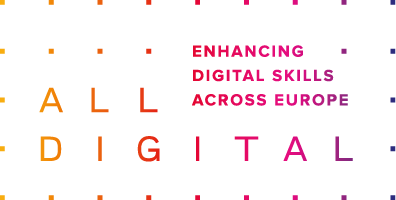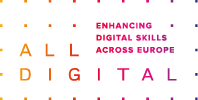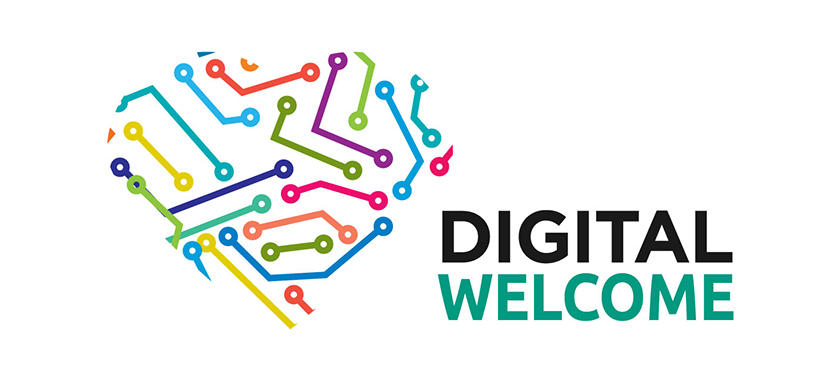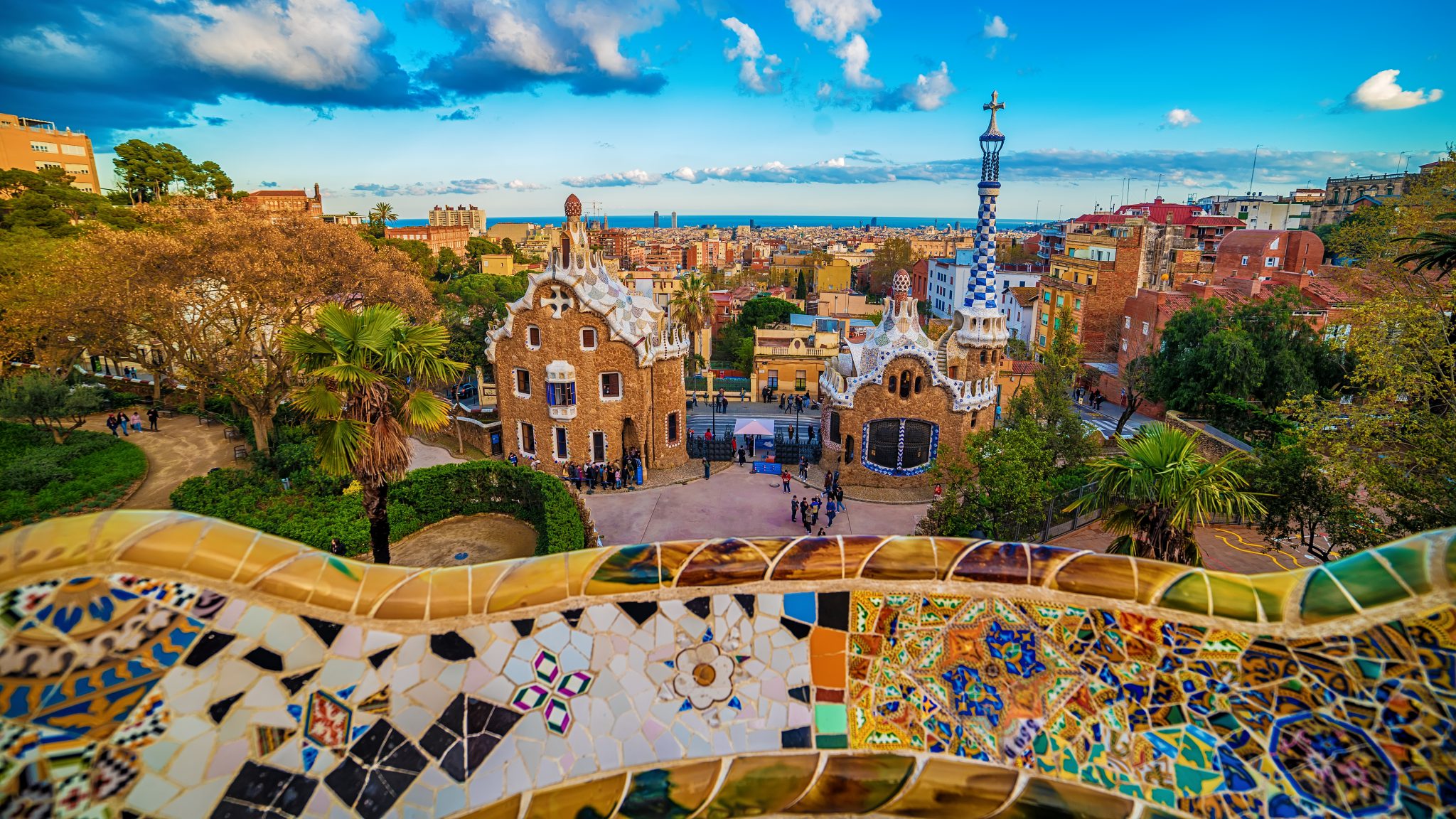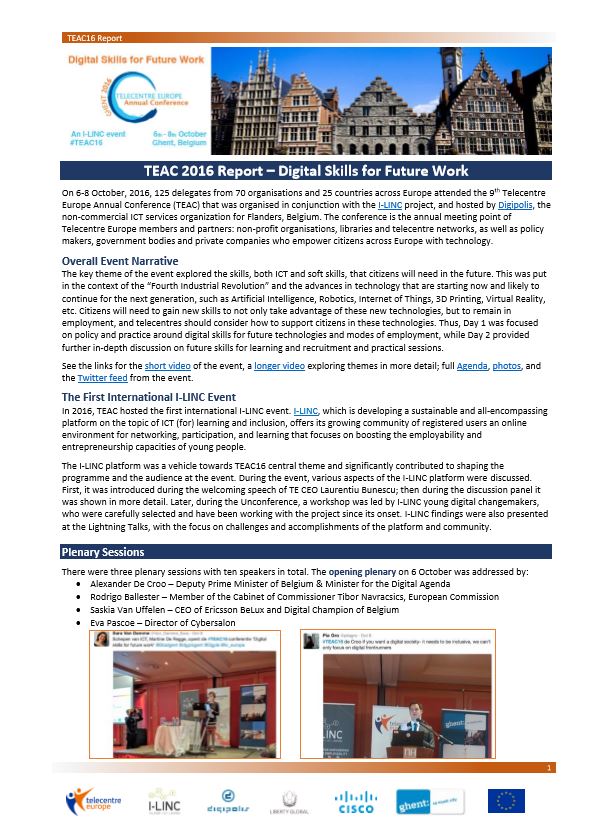02 Nov Discussions on social innovation and MIREIA takeover at ICT 2015 in Lisbon
02 Nov, 2015
Six members of our Board and our Managing Director attended the largest ICT conference in the EU ICT 2015 – Innovate, Connect, Transform last 20-22 October in Lisbon. The event, co-organised by the European Commission together with our Portuguese member Fundaçao para a Ciência e a Tecnologia Portugal (FCT), had received a record registration of more than 7,000 attendees.
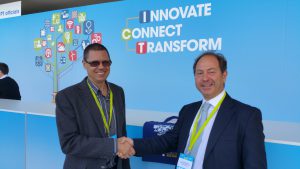
TE Director Gabriel Rissola and Gianluca Misuraca in Lisbon
Gabriel Rissola (TE) moderated one networking session with two guest speakers, Gianluca Misuraca (JRC-IPTS, European Commission) and Bastian Pelka (University of Dortmund). The session aimed to get an overview of the state of the art on digital social innovation research and action in Europe, as well as to present MIREIA methodology and the e-toolkit. These can be used to measure the socio-economic outputs, outcomes and impacts of ICT-driven grassroots interventions across Europe.
G. Rissola opened the session speaking about TE efforts and interest to demonstrate the social and economic impact of the collective effort of its community, which drives many ICT-enabling social innovation interventions to help vulnerable groups getting a job or being more integrated in society. Dr. B. Pelka presented the outcomes of his research, pointing out a disparity of social innovation definitions and understandings, presence of many repositories of initiatives and the fact that the user perspective is usually ignored. After introducing MIREIA methodology and e-tool, G. Misuraca linked it with a current IPTS research project on social policy innovation and its repository including initiatives in the field.

Discussions during the networking session at ICT 2015
Following the presentations, an animated debate revolved around the challenges and opportunities for a large scale experimentation of MIREIA in the field of digital social interventions with a focus on employability, and how such project could fit into Horizon 2020. Participants from different corners of Europe showed particular interest to focus on how digital skills can improve employability: from the use of social media to finding a job to developing soft skills to addressing job market needs or building gaming applications for employability. In addition, participants also pointed out that self-employment and micro-entrepreneurship are increasingly growing as an alternative to traditional jobs, so the impact assessment should focus on these micro-experiments.
After the session, MIREIA handover from JRC-IPTS to TE for further exploitation and scale-up was formally announced at the event. Based on the agreement between the two organisations, TE will put to use the methodology and tools developed by that research institute of the European Commission.
The visit to Lisbon was also an occasion for TE Board members to meet after the event at FCT premises and to discuss the strategic development of the organisation.
